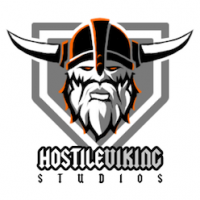The problem using custom engines is that you require resources in-house to maintain, develop and extend your custom engine. This is simply a cost factor where companies like Epic (Unreal Engine), Havok or Cry-Tech (Cry Engine) use there fully development resources to rapidly progress there engines; because it is there business. A good example why this might work on Unreal Engine (because they are on the market since the 90's) or it might not work (looking at Cry-Tech and Unity) is simply a good product, support and monetarization program that dosent let your customers feel like paying all there income as license fees.
Unity is a good example while Versions 3 and 4 might have worked stable more or less but up to 5.4 has had new bugs with every upgrade, this engine is in my opinion still difficult to use not for there simplicity but technical and development aspects from Unity itself. You dont know if the next update dosent crush your entire game or works as expected.
Another story is Cry-Tech that partnered with Amazon to set up Lumberyard but was more than once on the edge of insolvency. Reason? Dont know but I would assume that the docs have been not that simple or there fees might be too heavy, as I mentioned, dont know so this are guessworks.
I personally would prefer an in-house solution for most parts of our software but at the point that I worked a dozen years on the go for learning, understanding and developing game engines in several languages. This is also the reason I know that something like switching from OpenGL to Vulkan will result in getting into a new API with totally different approaches and adapt that into an existing system that worked with a different assumption on an approach how rendering works, so a company would need experts using there time on research and development of test versions to get to a working change. Same here, you would need to spend money and resources to keep your solution up to date. But still there are many companies that act on this balance between sharing resources for development of the engine and the product. Ubisoft uses its Snowdrop Engine for titles like Rainbow Six while other companies like Guerrilla Games (Sony Studio) with there title Horizon also push into the direction of using custom engine for there game.
The last point I think might take a big role in this decision process is you state as studio. Publishers do not want to pay much these days for smaller studios or indie companies that is why those would high propable not go into the direction of using in-house software rather than look for an arbitary license where more established studios or contracted ones will have the capital to do so









